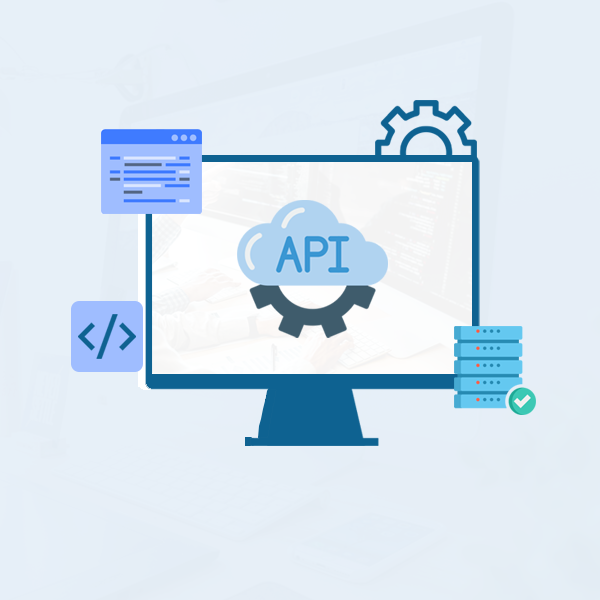The Evolution of Backend API Development in Modern Companies: An Overview of Roles and Responsibilities.
Visit Us: https://www.connectinfosoft.com/rest-api-development-service/
In today's backend API development has become a critical component of software development in modern companies. As businesses strive to provide seamless user experiences and integrate various systems, APIs have gained immense importance. In this article, we will explore the best practices for API development and discuss the responsibilities of backend developers in ensuring the smooth functioning of these crucial interfaces.
What Is Backend Development?
Backend web development entails the activities and obligations performed during application development. In contrast to front-end development, which focuses on client-facing services and programmes, backend web development also handles server-side web application functionality and activities such as writing APIs, constructing libraries, and connecting with critical systems. Backend developers, for example, write code that allows an application to interface with a database. Backend developers, among other things, keep an application's servers, databases and apps up to date and working properly. They basically have control over what you can't see.
API Development Best Practices
Developing robust APIs requires adherence to a set of industry best practices. These practices not only improve performance and security but also enhance the overall developer experience. Let's delve into some key best practices:
1. Designing a Clean and Consistent API
Backend developers should prioritize designing APIs that are intuitive and consistent. A well-designed API is self-explanatory, making it easier for developers to understand its features and functionality. Consistency in naming conventions, response formats and error handling enhances the developer experience and reduces confusion during integration.
2. Documentation and API Contracts
Comprehensive and up-to-date documentation is vital for both internal and external developers. Properly documenting APIs includes providing detailed usage instructions, examples, and explanations of request/response structures. Additionally, defining clear API contracts and versioning policies ensures smooth communication and avoids compatibility issues.
3. Authentication and Authorization
Securing APIs is crucial to protect sensitive data and prevent unauthorized access. Implementing appropriate authentication and authorization mechanisms, such as OAuth 2.0 or JSON Web Tokens (JWT), helps validate and control access to APIs. Backend developers should consider incorporating industry-standard security measures to mitigate potential threats.
4. Error Handling and Logging
An effective error handling mechanism is essential for API development. Well-defined error codes and messages facilitate troubleshooting and help developers identify and resolve issues quickly. Additionally, logging API requests and responses can assist in monitoring and debugging potential problems, leading to more efficient maintenance and support.
5. Performance Optimization
Backend developers must optimize API performance to ensure low latency and high throughput. Techniques such as caching, compression, and intelligent data retrieval can significantly improve response times. Conducting regular load testing and performance profiling provides insights into potential bottlenecks and allows developers to fine-tune API performance.
Responsibilities of Backend Developers
Backend developers play a crucial role in API development, responsible for building the server-side components that power these interfaces.
Some key responsibilities include:
1. API Design and Development
Backend developers are responsible for designing and implementing APIs that meet the specific requirements of an application or system. They must ensure that APIs are reliable, scalable, and maintainable. This involves creating clear endpoints, defining data models and handling different types of requests and responses.
2. Data Management and Integration
Data plays a central role in API development. Backend developers are responsible for managing data storage, retrieval and manipulation. They must establish efficient data management strategies and integrate APIs with databases or other external systems. This involves designing database schemas, writing queries and implementing data validation and sanitization.
3. Security and Authentication
Backend developers must implement robust security measures to protect APIs and the sensitive data they handle. They are responsible for implementing authentication and authorization mechanisms, encrypting data during transmission and ensuring compliance with industry-standard security protocols. Regular security audits and threat assessments are critical to maintaining a secure API infrastructure.
4. Performance Monitoring and Optimization
Backend developers should continuously monitor API performance, identifying potential bottlenecks and areas for optimization. They are responsible for conducting load testing, performance profiling, and employing techniques such as caching, compression, and query optimization to improve overall performance. Regularly analyzing system metrics and logs helps identify areas of improvement and ensure optimal response times.
5. Bug Fixing and Maintenance
Backend developers are tasked with debugging and fixing issues that arise in API functionality. They should promptly address bug reports, identify root causes and deploy bug fixes in a timely manner. Additionally, they must actively participate in routine maintenance activities, ensuring API uptime, security patching and version upgrades to address evolving business needs and technology advancements.
Conclusion:
In conclusion, backend API development has witnessed a significant evolution in modern companies. Adhering to API development best practices ensures robustness, security, and scalability, while backend developers shoulder crucial responsibilities in designing, developing, securing, and optimizing APIs. By embracing these best practices and understanding the role of backend developers, companies can leverage the power of APIs to provide exceptional user experiences and propel their digital transformation initiatives.
Tags: The Evolution of Backend API Development in Modern Companies, Backend API Development Service, Connect Infosoft, Looking Rest APIs Development Services Company, Connect Infosoft, Backend API Dev Team API Development, Looking for Backend API Developer, Looking for Backend API Dev Team, Rest API Development Company
